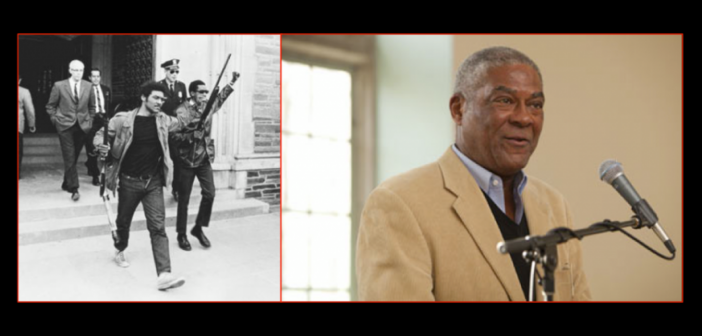One of the vivid images of the 1960s is a picture of African American students walking boldly out of Cornell University’s student union building. They left following a thirty-four hour takeover. The photo showed Thomas W. Jones, a leader of the student group, holding a rifle and raising a clenched fist. Cornell president James Perkins lost his job a month later.
Leaders see themselves as stewards of values beyond themselves … and do what is most needed as servants of God’s grace in the multitude of changing circumstances they face.
Interestingly, Perkins sought to increase the recruitment and retention of African American students at Cornell. In the six years he was president, the number of African American students increased from less than 10 to more than 250. But in 1969, he was under fire for his handling of the takeover of Willard Straight Hall by African American students, a protest that was one of the most famous campus demonstrations of the time.
Fast forward 25 years. Perkins is retired. Jones is president of TIAA-CREF, the world’s largest pension fund, and is a member of the Cornell University Board of Trustees. In 1995, Jones endowed an award at Cornell to foster racial understanding. He named it the James A. Perkins Prize for Interracial Understanding and Harmony.
A different picture circulated through the news media. This picture showed an aging Perkins and a distinguished-looking Jones side by side with warm smiles all around. Perkins died three years later.
What happened in between? And is there anything leaders can learn from this striking series of events? Some suggested that Jones grew up, came to his senses, regretted his past, and wanted to make amends. He did want to “come to closure with a chapter in the university’s history, a chapter in my life.” Nevertheless, he was the same person functioning in both situations, trying to be faithful to the circumstances of the time. The journalist Clarence Page, in commenting on this story, finds the key not in ideology past or present. Page finds the clue in Jones’s statement that he did in each case what appeared to be demanded by the times.
Leaders are true to themselves but not with a self-centered “I’ve got to be me” approach. Leaders see themselves as stewards of values beyond themselves. In doing so, they ask what is required in each situation. New occasions do teach new duties, as the hymn puts it. Leaders are authentic, but at the heart of that authenticity is a desire to be and do what is most needed as servants of God’s grace in the multitude of changing circumstances they face.
Related Resources:







